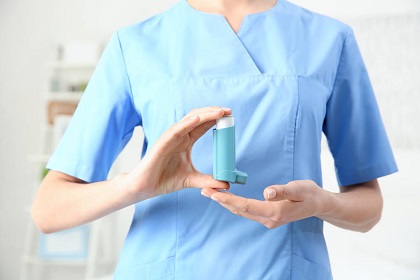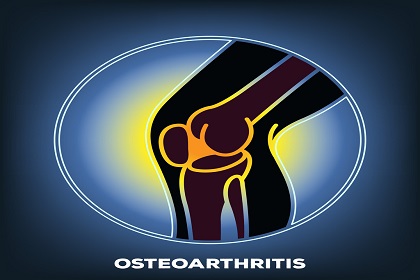Search
Why get vaccinated?
Measles, mumps, and rubella are viral diseases that can have serious consequences. Before vaccines, these diseases were very common in many part of the world. Especially among children.
Measles
• Measles virus causes symptoms that can include fever, cough, runny nose, and red, watery eyes, commonly followed by a rash that covers the whole body
• Measles can lead to ear infections, diarrhea, and infection of the lungs (pneumonia). Rarely, measles can cause brain damage or death
Mumps
• Mumps virus causes fever, headache, muscle aches, tiredness, loss of appetite, and swollen and tender salivary glands under the ears on one or both sides
• Mumps can lead to deafness, swelling of the brain and/or spinal cord covering (encephalitis or meningitis), painful swelling of the testicles or ovaries, and, very rarely, death
Rubella (also known as German Measles)
• Rubella virus causes fever, sore throat, rash, headache, and eye irritation
• Rubella can cause arthritis in up to half of teenage and adult women
• If a woman gets rubella while she is pregnant, she could have a miscarriage or her baby could be born with serious birth defects
These diseases can easily spread from person to person. Measles doesn't even require personal contact. You can get measles by entering a room that a person with measles left up to 2 hours before.
Vaccines and high rates of vaccination have made these diseases much less common in the world.
MMR vaccine
Infants 8 months old and above to receive MR (Measles + Rubella) vaccine.
Children should get 2 doses of MMR vaccine, usually between 12 and 18 months old and at 4 years old.
Adults might also need MMR vaccine. Many adults 18 years of age and older might be susceptible to measles, mumps, and rubella without knowing it.
A third dose of MMR might be recommended in certain mumps out break situations. There are no known risks to getting MMR vaccine at the same time as other vaccines.
Some people should not get this vaccine
Tell your vaccine provider if the person getting the vaccine:
• Has any severe, life-threatening allergies. A person who has ever had a life threatening allergic reaction after a dose of MMR vaccine, or has a severe allergy to any part of this vaccine, may be advised not to be vaccinated. Ask your health care provider if you want information about vaccine components
• Is pregnant, or thinks she might be pregnant. Pregnant women should wait to get MMR vaccine until after they are no longer pregnant. Women should avoid getting pregnant for at least 3 months after getting MMR vaccine
• Has a weakened immune system due to disease (such as cancer or HIV/AIDS) or medical treatments (such as radiation, immunotherapy, steroids, or chemotherapy)
• Has a parent, brother, or sister with a history of immune system problems
• Has ever had a condition that makes them bruise or bleed easily
• Has recently had a blood transfusion or received other blood products. You might be advised to postpone MMR vaccination for 3 months or more
• Has tuberculosis
• Has gotten any other vaccines in the past 4 weeks. Live vaccines given too close together might not work as well
• Is not feeling well. A mild illness, such as a cold, is usually not a reason to postpone a vaccination. Someone who is moderately or severely ill should probably wait. Your doctor can advise you
Risks of a vaccine reaction
With any medicine, including vaccines, there is a chance of reactions. These are usually mild and go away on their own, but serious reactions are also possible. Getting MMR vaccine is much safer than getting measles, mumps, or rubella disease. Most people who get MMR vaccine do not have any problems with it.
After vaccination, please stay in clinic observation area for 30 minutes.
After MMR vaccination, a person might experience:
Minor events
• Sore arm from the injection
• Fever
• Redness or rash at the injection site
• Swelling of glands in the cheeks or neck
If these events happen, they usually begin within 2 weeks after the shot. They occur less often after the second dose.
Moderate events
• Seizure (jerking or staring) often associated with fever
• Temporary pain and stiffness in the joints, mostly in teenage or adult women
• Temporary low platelet count, which can cause unusual bleeding or bruising
• Rash all over body
Severe events occur very rarely
• Deafness
• Long-term seizures, coma, or lowered consciousness
• Brain damage
Other things that could happen after this vaccine
• People sometimes faint after medical procedures, including vaccination. Sitting or lying down for about 15 minutes can help prevent fainting and injuries caused by a fall. Tell your provider if you feel dizzy or have vision changes or ringing in the ears
• Some people get shoulder pain that can be more severe and longer-lasting than routine soreness that can follow injections. This happens very rarely
• Any medication can cause a severe allergic reaction. Such reactions to a vaccine are estimated at about 1 in a million doses, and would happen within a few minutes to a few hours after the vaccination
As with any medicine, there is a very remote chance ofa vaccine causing a serious injury or death.
What if there is a serious reaction?
What should I look for?
Look for anything that concerns you, such as signs of a severe allergic reaction, very high fever, or behavior changes. Signs of a severe allergic reaction can includehives, swelling of the face and throat, difficulty breathing, a fast heartbeat, dizziness, and weakness. These would start a few minutes to a few hours after the vaccination.
What should Ido?
If you think it is a severe allergic reaction or other emergency that can't wait, call 120 or get the person to the nearest hospital. Otherwise, call your doctor.
Where can I get more information?
• Jiahui Health
Contact number: 400-868-3000
• Shanghai Municipal Center for Disease Control & Prevention
Contact number: 021-62758710
Website: http://www.scdc.sh.cn
Reference
The US Centers for Disease Control and Prevention. Vaccine Information Statement: MMR Vaccine, 02/12/2018
Click the link for more information on Family Medicine Clinical Service
Click the link for more information on Pediatrics Clinical Service











